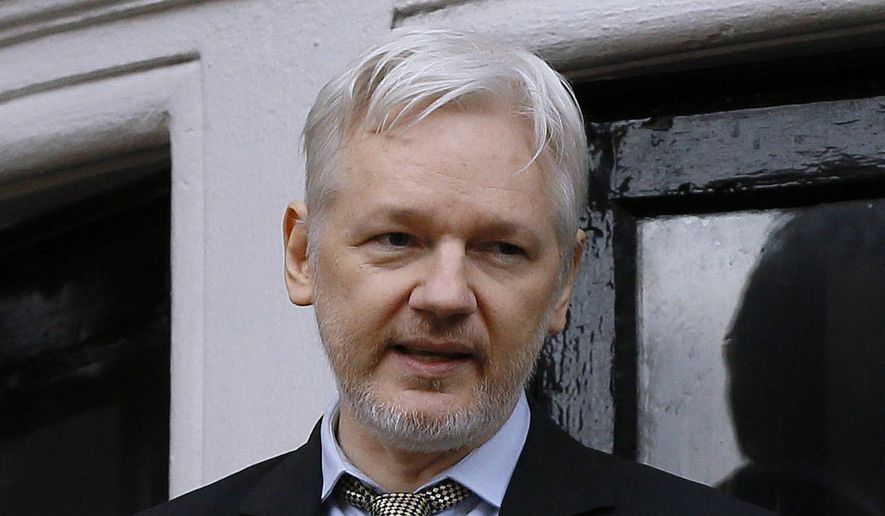A grand jury investigation convened following WikiLeaks’ publication of classified U.S. government material in 2010 has been broadened to encompass its recent receipt of CIA hacking documents, Reuters reported Friday.
Federal prosecutors in the Eastern District of Virginia have widened their long-running WikiLeaks probe in the aftermath of the website’s release this month of documents detailing the intelligence agency’s previously unreported hacking prowess, a source familiar with the investigation told Reuters on condition of anonymity.
While the CIA has refused to confirm the authenticity of the documents, multiple security and law enforcement officials said investigators in Alexandria are actively attempting to identify the source of the leak and whether an intelligence contractor was responsible as some have suggested, Reuters reported.
WikiLeaks said March 7 that it had obtained “8,761 documents and files from an isolated, high-security network situated inside the CIA’s Center for Cyber Intelligence,” an elite hacking unit involved in the agency’s offensive eavesdropping operations, and subsequently began publishing redacted excerpts.
“This extraordinary collection, which amounts to more than several hundred million lines of code, gives its possessor the entire hacking capacity of the CIA,” WikiLeaks has claimed. “The archive appears to have been circulated among former U.S. government hackers and contractors in an unauthorized manner, one of whom has provided WikiLeaks with portions of the archive.”
Yet absent the government’s corroboration, notable former CIA employees including retired U.S. Air Force Gen. Michael Hayden have indicated the documents may be legit.
“This seems to be an incredibly damaging leak in terms of the tactics, techniques, procedures and tools that were used by the Central Intelligence Agency to conduct legitimate foreign intelligence. In other words, it has made my country and my country’s friends less safe,” Mr. Hayden, a former director of the agency, told the BBC recently.
In reportedly widening its existing WikiLeaks probe, federal prosecutors have begun writing a new chapter in a book started nearly seven years earlier.
The Justice Department began investigating WikiLeaks after the website began publishing a treasure trove of State and Defense Department documents in 2010, including diplomatic cables and a cache of material concerning the wars in Iraq and Afghanistan. Military prosecutors ultimately arrested and convicted Army Pvt. Chelsea Manning for leaking those files and others to the website, but the U.S. government has otherwise failed to formally bring charges against anyone else in connection with WikiLeaks in the years since, notwithstanding its ongoing publication of sensitive documents implicating America and its allies.
Nonetheless, U.S. officials have occasionally acknowledged that WikiLeaks remains the subject of an ongoing federal investigation, and snippets and leaks in the intervening years have revealed sparse but significant details concerning the probe.
In 2012, for example, a former acquaintance of Manning acknowledged being asked to testify in secret before the grand jury concerning his connection to the WikiLeaks source and others affiliated with the website. More recently, Google confirmed in 2015 that it was compelled by the government to hand over hundreds of pages concerning internet activity of another individual previously associated with WikiLeaks.
While not formally charged, WikiLeaks publisher Julian Assange has insisted repeatedly that he may be charged for overseeing the publication of classified documents.
The Justice Department and CIA declined to comment with regards to the WikiLeaks probe, Reuters reported. The Washington Times’ attempt to contact Mr. Assange on Saturday was not immediately successful.
• Andrew Blake can be reached at ablake@washingtontimes.com.




Please read our comment policy before commenting.